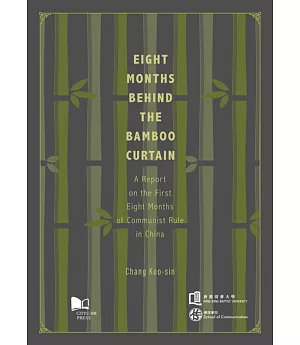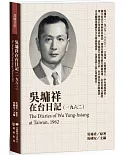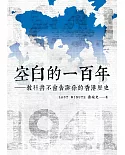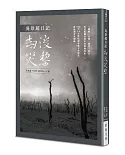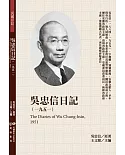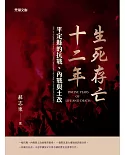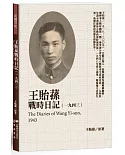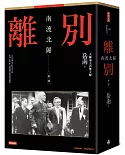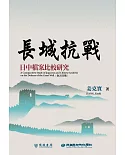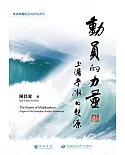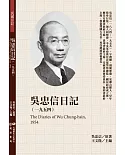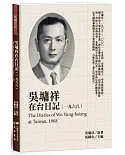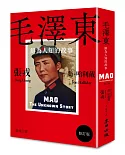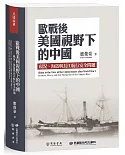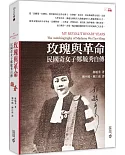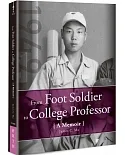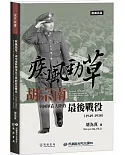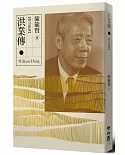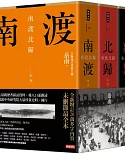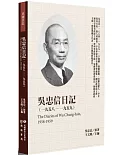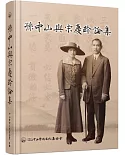Preface to the Second Edition
My basic motivation in republishing this little book from a manuscript written forty-nine years ago (which was published in Chinese the same year) is to preserve a memento of my old days with
the United Press of America, an experience that I value tremendously in my life.
I was the United States Staff Correspondent in China from 1946 to 1952, based in Nanking, the nationalist capital of China. When the Chinese communists banned foreign news agencies in the
fall of 1949, I was transferred to the United Press Bureau in Hong Kong.
The original manuscript for this book was made for publication in Chinese. I must have kept copies but have lost them in the long years since and had not expected to see any copies until this
one was found among the wartime papers of US General Claire L. Chennault.
General Chennault achieved fame when he organised the American Volunteer Group (AVG), also known as the Flying Tigers, in 1941 to aid China in the war against Japan. It was later expanded
into the US 14th Air Force, and General Chennault became its commander with the rank of Lieutenant General.
This little book has no contemporary interest, albeit perhaps some contemporary relevance since it is possible that what the Chinese communists encountered and experienced in the first eight
months of their rule might have helped convert them into what they are today.
The Chinese communists can be said to have been tamed at birth, the cumulative result being: the Chinese communists were compelled to abandon the radicalism of their Marxist ideology and
continue to accept the moderation of Chinese philosophy, though stubbornly keeping their brand name – communism. They answered in their own way the question of what is in a name: as long as
they keep their name, they could and are willing to do anything else.
At the end of my eight months stay behind the Bamboo Curtain, I left China with mixed feelings – with regret that I would not be able to witness what could be described as one of China’s most
cataclysmic transformations in history; and with happiness that moving to Hong Kong would assure my family and me a life without uncertainty and fear, where we could at least be sure of
tomorrow.
In 1956, I met veteran journalist K.S. Chang in Singapore who gave me the first hint of what might have happened to me if I had stayed behind in China. His initials are the same as mine,
leading the Chinese communists to mistake him for me. Mr. Chang was formerly editor-in-chief of the English-language China Times in Shanghai and moved to Singapore before the “liberation” to
become the editor-in-chief of the Singapore Standard, often called the Tiger Standard. His wife, who was still in Shanghai when the city was “liberated”, was denied an exit visa to join her
husband in Singapore. The Chinese communists thought she was my wife. After they realised their mistake, they granted her the exit visa. The Chinese communists continued their pursuit of me,
harassing and questioning some of my friends about my whereabouts.
In China I had watched and covered its greatest intellectual and political revolution in history. I learned much about the forces of history which alienated the government from the people and
inspired a revolution to establish democracy and freedom. I learned, too, that all good things do not always end in good results.
The Chinese communist revolution to overthrow autocracy and oppression ended, as we all know by now, in worse democracy and oppression. That was what appeared in the first eight months of
communist rule in China. But it has changed over the years and has become more acceptable to the Chinese people.
In my 1950 manuscript, I reported copiously on the negative Chinese public reactions to communist rule – cynical, sceptical and even sometimes belligerent. I observed that the Chinese
communists would have to change their ways or they would ultimately fail and also that, as communists, they would succeed, while their communism would not.
These two observations seemed to have been amply justified by subsequent developments. The Chinese communists have changed and they are still in power. They retain their name – communists –
but have abandoned their communism.
Although I had not predicted the Soviet-Chinese communist split in 1960, I had concluded from the negative public reactions that the two communist countries could not stay ideological allies
for too long. The split, however, is to be expected as a logical conclusion of the obvious Chinese people’s rejection of Soviet Russia as China’s “Big Brother”, as she had been portrayed by
Chinese communist propaganda.
When the time came for my family and me to leave China for Hong Kong, my biggest problem was how to sneak out the volumes of notes I had taken during my stay behind the Bamboo Curtain so that
I could use them for my reports. In a moment of enlightenment or in a stroke of luck, I thought of a way to do so and hence embarked on my long journey from Shanghai.
My idea, which to my delight proved to be a complete success, was to buy a Chinese dinner set for twelve persons of porcelain bowls, dishes and spoons and a big camphor chest. I packed the
whole dinner set in the camphor chest using my notes as wrapping paper. The communist guards on several occasions looked into the camphor chest, but when they saw the dinner set wrapped in what
they thought was merely used paper, they waved me through.
During my trip from Shanghai to Hong Kong I avoided as far as possible revealing my identity as an “imperialist running-dog” correspondent. Only on two occasions was I compelled to reveal my
identity, but to my surprise the communist guards became more polite to me.
The guards did not know that I was carrying volumes of notes I had made in the eight months behind the Bamboo Curtain on what had happened after the communists took over and my observations
on what had happened between the communists and the people. I knew that I had to write these notes of my experiences when caught behind the Bamboo Curtain – a region closed to the outside
world; the United Press surely expected this of me. I had worried a lot about how to get the notes out of China because I knew that if I were caught I would be charged with being a spy.
When taking the notes, I made three sets of them. Apart from the set I sneaked out in the camphor chest, I sent one set by mail to Hong Kong from Shanghai and one set from Canton. The set
from Canton arrived five months later, while the set from Shanghai never arrived. The camphor chest set was the only set I had on arrival in Hong Kong and they gave me the data to write the
twenty-one articles for the United Press. These articles were widely used and became what were called the first inside reports from behind the Bamboo Curtain.
I wish to thank my granddaughter Jennifer Nee-wah Kim for editing the original manuscript for republication in this book. She has done a great job in putting things in an orderly manner. For
this I shall be forever grateful.
CHANG Kuo-sin
December 1999
Sacramento, California

